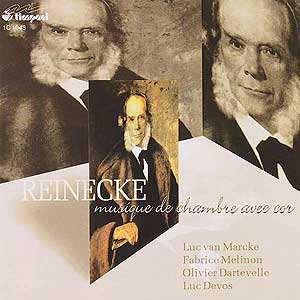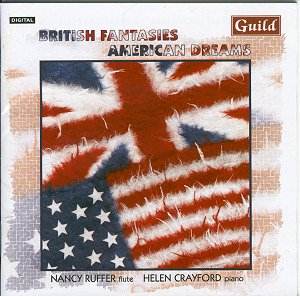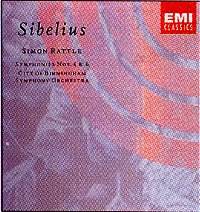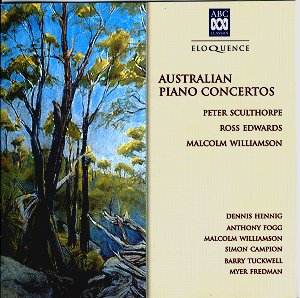 Composer: Carl Reinecke
Composer: Carl Reinecke
Works: Trio for oboe, horn and piano in A minor, op. 188; Nocturne for horn and piano, op. 112; Trio for clarinet, horn and piano in B flat major, op. 274
Performers: Luc van Marcke (horn), Fabrice Melinon (oboe), Olivier Dartevelle (clarinet), Luc Devos (piano)
Recording: January/March 1997, Villa Louvigny, Luxembourg
Label: Timpani 1C1043
Carl Reinecke, a significant yet often overlooked figure of the late Romantic era, occupies a unique space in the pantheon of 19th-century composers. His contemporaries, Brahms and Schumann, overshadow him in popular recognition; however, Reinecke’s contributions to chamber music are substantial. The present collection of three works for horn, oboe, clarinet, and piano showcases his melodic prowess and rich harmonic language, revealing a composer deeply engaged with the traditions of his time while also striving for his own voice.
The Trio for oboe, horn, and piano in A minor, op. 188, opens with a captivating arpeggio figure introduced by the oboe. This motif, simple yet profoundly memorable, sets the tone for a work that balances lyrical beauty with structural integrity. The performers—Luc van Marcke on horn, Fabrice Melinon on oboe, and Luc Devos on piano—exhibit a commendable synergy, particularly in their ability to weave the distinct timbres of their instruments into a cohesive musical narrative. The interplay between the horn and oboe is particularly noteworthy; van Marcke’s rich, almost trombone-like tone contrasts effectively with Melinon’s lighter, more ethereal sound, creating a dialogue that is both engaging and nuanced.
Reinecke’s Nocturne for horn and piano, op. 112, introduces a more introspective atmosphere, characterized by its expressive melodic lines and fluid harmonic progressions. The horn, in this context, serves as a voice of contemplation, its phrases shaped with a sensitivity that van Marcke captures beautifully. The engineering quality of the recording allows for an intimate listening experience, where the nuances of both the horn and piano are rendered with clarity and warmth. Devos’s piano playing, while often in a supportive role, reveals a depth of character that elevates the work, particularly in moments where the piano takes the lead, showcasing technical agility and emotional depth.
The Trio for clarinet, horn, and piano in B flat major, op. 274, presents a more complex structure that rewards patient listening. Its finale, culminating in a grand climax, is well-constructed, yet it concludes in an unexpectedly poetic manner that lingers in the listener’s ear. Olivier Dartevelle’s clarinet playing is a highlight here, as he adeptly transitions between a rich, mellifluous tone and a more incisive, piercing sound when the music demands it. This versatility, combined with his technical prowess, enhances the work’s dramatic arc and emotional impact.
The disc’s overall recording quality is commendable, with a balance that allows each instrument to shine while maintaining the integrity of the ensemble. The technical demands of Reinecke’s compositions seem to hold no fear for these accomplished musicians, who navigate the score’s intricacies with assurance and flair. While Reinecke’s music may not possess the immediate sparkle of his more celebrated contemporaries, it is infused with a quiet passion and craftsmanship that reveals itself upon deeper engagement.
This recording encapsulates a journey into the less-traveled paths of Romantic repertoire, making a case for Reinecke’s chamber works that should not be overlooked. While it may not be an essential purchase for every collector, it offers a rewarding exploration for those willing to venture beyond the familiar. The quality of both the music and the performers suggests a solid addition to the library of any discerning listener eager to discover the treasures of the Romantic chamber music landscape.



